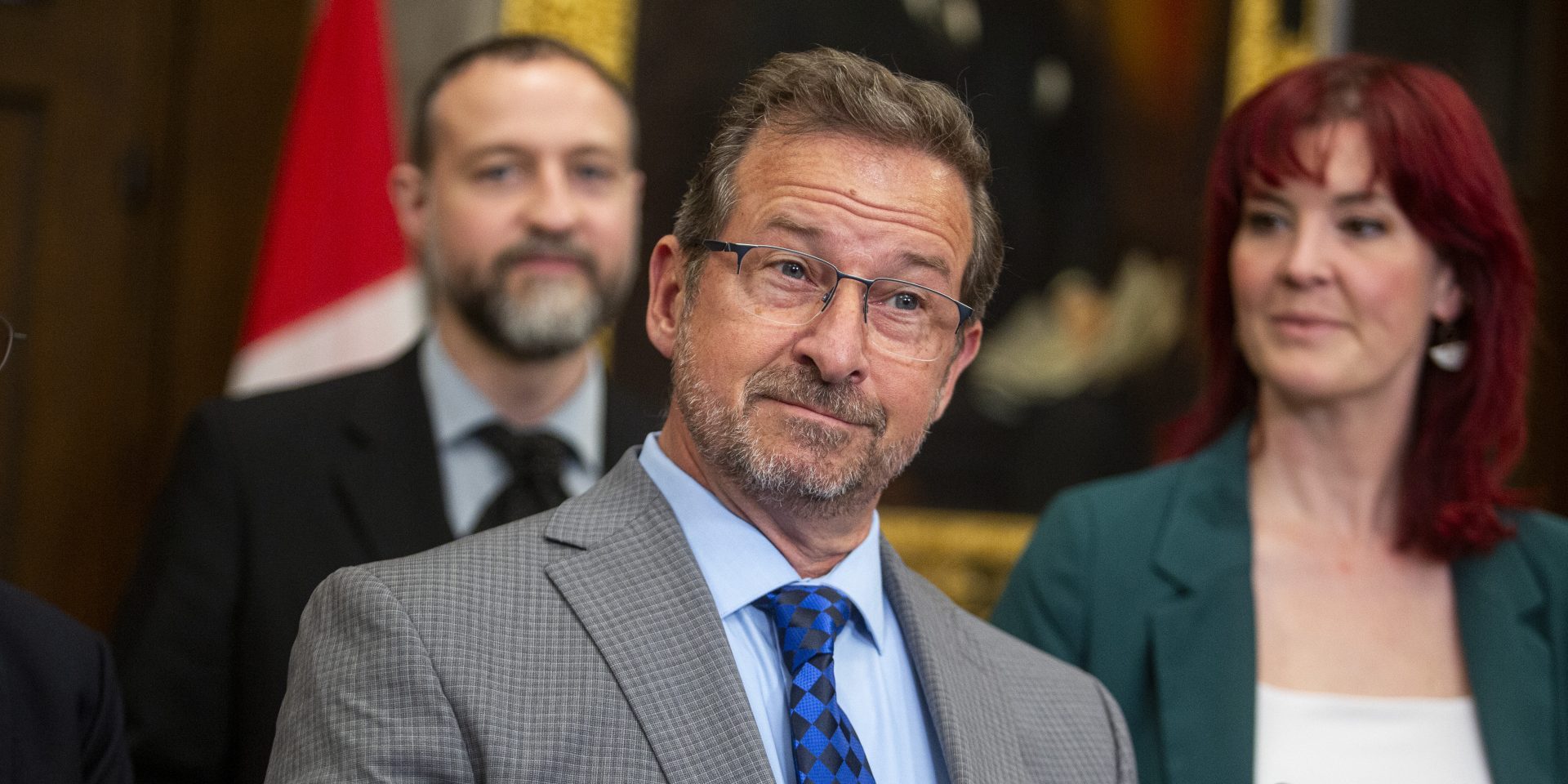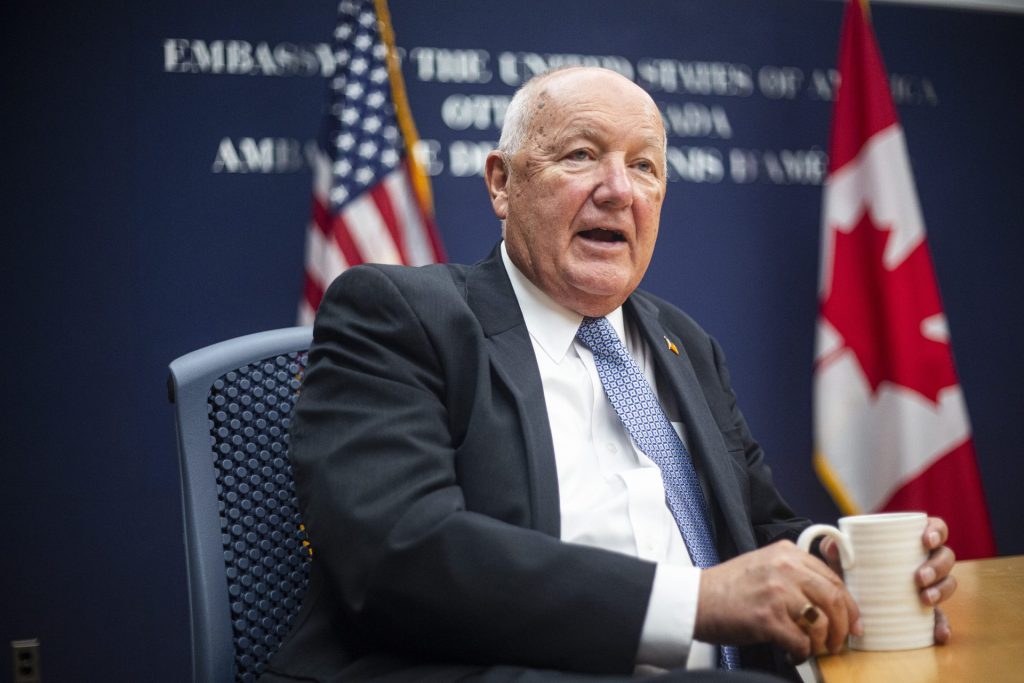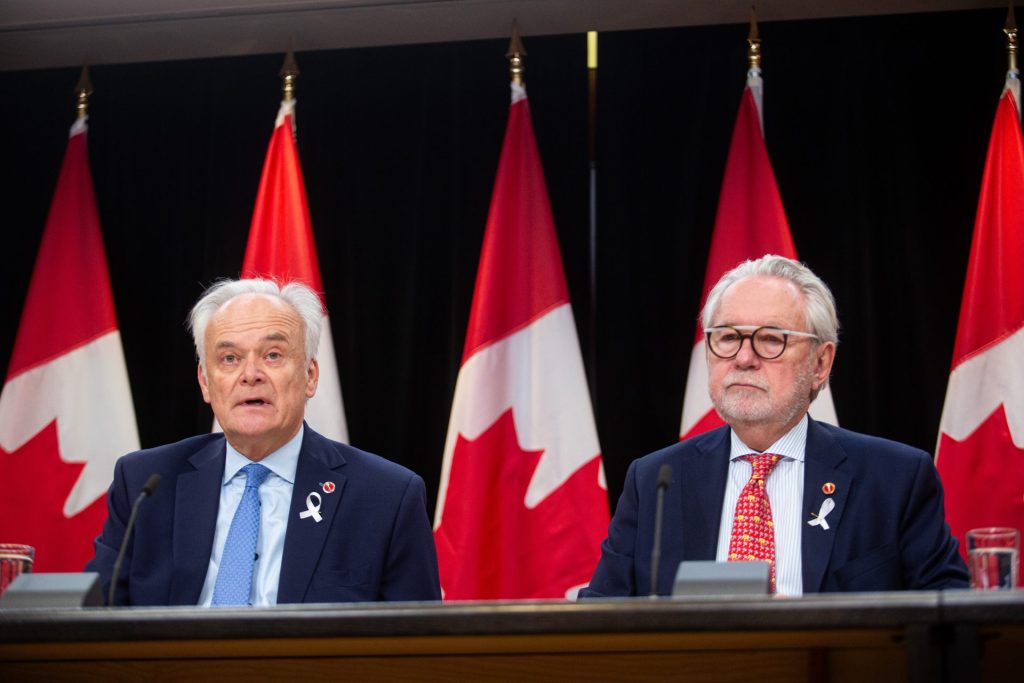Bloc’s supply management bill passes House as U.S. anticipates dairy being a trade ‘discussion point’

For the third straight Parliament, the Bloc Québécois has tabled a bill to bar supply-management concessions in trade negotiations, as the United States indicates the protected industry is likely to be a “discussion point.”
Bloc Leader Yves-François Blanchet (Beloeil-Chambly, Que.) tabled Bill C-202 in the House on May 29 and urged the Chamber to act expeditiously to pass the private member’s bill which aims to protect the dairy, egg, and poultry sectors.
“During the last Parliament, all of the political parties supported a bill aimed at protecting the entire supply management system,” he said. “I note that all of the political parties in the House have indicated that they will support this initiative. I, therefore, hope that we can move forward quickly, with the support of all members. This bill is extremely important to the economic model in Quebec’s regions and many Canadian regions as well, and it deserves our urgent attention.”
The protection of supply management has brought near universal cross-party support as politicians jockey for recognition as its most fervent defender. But trade uncertainty could thrust the issue as a central sticking point on the negotiation table. During the federal election, all parties agreed that supply management wouldn’t be on the trade docket.
The bill passed the House of Commons through unanimous consent on June 5.
Asked if that would have to change for Canada-U.S. trade talks to progress, U.S. Ambassador to Canada Pete Hoekstra told The Hill Times last month that he anticipated it would be on the table, but wouldn’t predict any possible result.
“That’s why you have talks. You see what you can negotiate and what you can’t,” he said during a May 22 interview at the U.S. Embassy, remarking that the Trump administration is aware of the restrictions in Canada on American dairy exports. “I would anticipate that it would be a discussion point.”
“I’m not going to anticipate what the outcome will be. That will be for [Commerce Secretary Howard] Lutnick and [U.S. Trade Representative] Jamieson Greer and for [Treasury Secretary Scott] Bessent—for them to figure out,” he said.

Hoekstra said the question is over how the U.S. increases its prosperity, security, and safety, and how dairy fits into that.
“It’s a complex puzzle. Those guys are spending all day figuring out what that puzzle will look like,” he said.
Hoestra told The Globe and Mail on June 5 that Prime Minister Mark Carney (Nepean, Ont.) and U.S. President Donald Trump have held multiple “conservations” beyond their Oval Office meeting on a trade and security pact.
Last week, Carney told the House that supply management “will never be on the table in negotiations with the Americans,” remarking that “we will protect supply management.”
Bloc Québécois MP Martin Champoux (Drummond, Que.) asked if the government would support Bill C-202.
“We will carefully consider the Bloc Québécois bill that was introduced this morning,” he said on May 29.
The previous iteration of the bill in the last Parliament enjoyed all-party backing in the House of Commons. It passed third reading in June 2023 with the support of the entirety of the Liberal caucus (except for two MPs), as well as the NDP and Bloc. The majority of the Conservative caucus voted for the bill: 56 for, 49 against.
The bill hit a roadblock in the Senate Foreign Affairs Committee as Senators heard from former trade negotiators who were opposed to the bill. The Bloc accused Independent Senator Peter Boehm (Ontario) and Progressive Senator Peter Harder (Ontario) of having “literally sabotaged” the bill, as the legislation was amended by Harder to only curtail supply management concessions in future trade talks with new countries with which Canada had no deals. Boehm and Harder were chair and vice-chair, respectively, of the committee in the last Parliament.
Supply management shouldn’t be deal breaker: former negotiator
Former trade negotiator Colin Robertson, a Canadian Global Affairs Institute senior adviser, said the government wouldn’t want to allow the bill to pass given that it is in active discussions with the U.S.
“You don’t want to do anything in negotiation that is going to lessen your capacity to make a deal,” he said.
He said the bill would be a “red flag” for the American trade representative, and would make it more difficult for Canada to achieve the economic and security framework that Carney is seeking.
Robertson, a former diplomat at Canada’s Embassy in Washington, D.C., said the Trump administration would be forced to raise the issue of supply management access as there will be heavy Congressional pressure from dairy-producing states.
He said that if protecting supply management is the difference between a deal and no deal, then Ottawa would have to consider giving increased access, especially if the opposite would threaten the dispute settlement system or this country’s auto sector.
“If the Americans would insist on something, [dairy] would not be a deal breaker,” he said. “But we’re not at that [position yet].”

Canadian Agri-Food Trade Alliance (CAFTA) executive director Michael Harvey said that Carney was clear during the election that negotiating positions don’t need to be legislated.
CAFTA was one of the leading voices opposing the previous iteration of Bill C-202.
“The prime minister’s statement on that was clear, and he said that the government would study the bill closely. It’s important that the House do so now.”
Harvey said his hope is that MPs will have come around to understand that given the instability in the international trading environment that “shooting ourselves in the foot” with Bill C-202 is a “really bad idea.”
“With the uncertainty [with the U.S.], why put ourselves in an even weaker position? We should be strengthening our position, not weakening it,” said Harvey.
He added that no sector should be taken off the negotiation table.
Carlo Dade, director of international policy at the University of Calgary’s School of Public Policy, said there are two school of thought on supply management in trade talks with the U.S.
On one hand, Dade said America has shown its hand that it is unwilling to uphold trade commitments.
“Why should we make concessions?” he questioned.
On the other hand, Canada is in enough trouble already, he said, and there are questions whether the nation can continue to afford to fervently protect supply management.
Even before Trump’s return to the White House, there was a bipartisan consensus emerging that was opposed to how Canada was allotting access to its supply-managed markets under the North American trade deal.
Dade highlighted that it is not the U.S. alone that’s opposed to how Canada allocates supply-managed access the country negotiates away in trade pacts; Australia has also complained about the issue.
“This isn’t just a U.S. issue. There are a host of countries that are upset with us on this,” he said.
The United Kingdom paused trade talks with Canada as Ottawa was unwilling to allow for greater cheese access, for example.
“I think we’ve run out of runway in stalling on these issues,” Dade said. “I don’t know if we can continue to run out the clock on this and continue what we’ve done in the past.”
Editor’s note: This story was updated online at 11:40 a.m. on June 6. The bill was fast-tracked through the House on June 5.
nmoss@hilltimes.com
The Hill Times






 LICENSING
LICENSING PODCAST
PODCAST ALERTS
ALERTS













